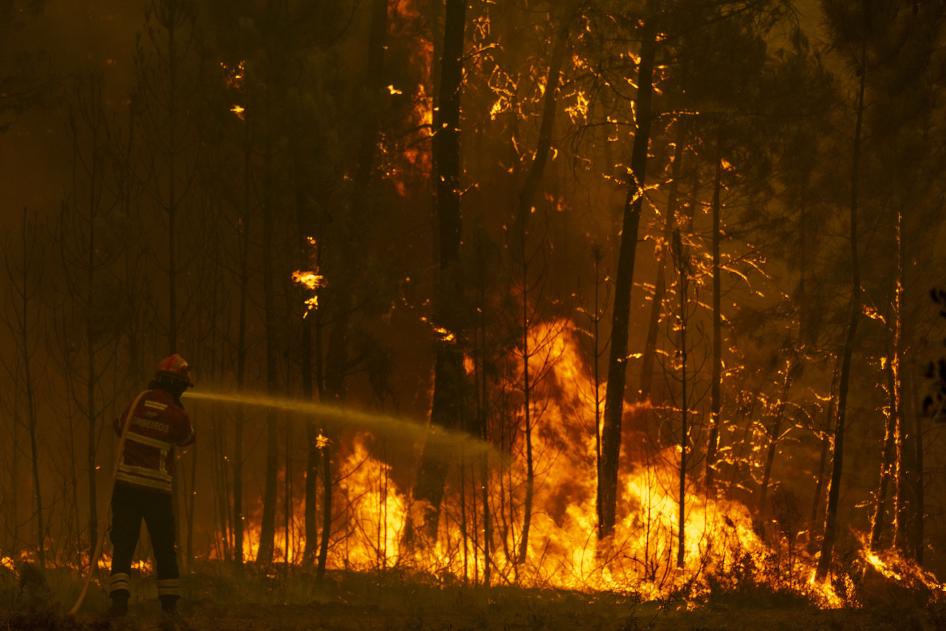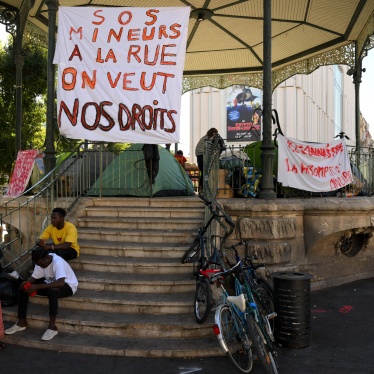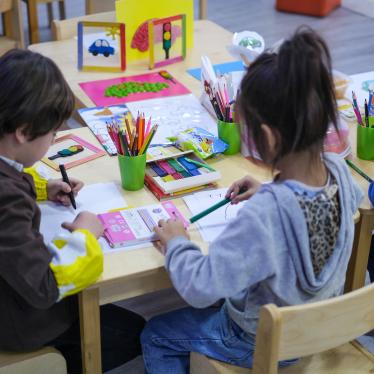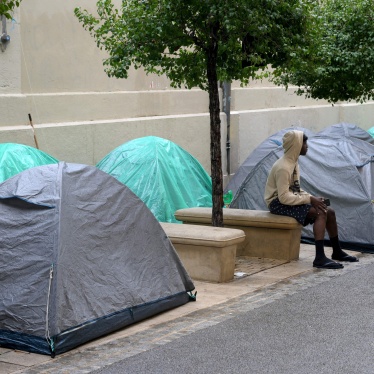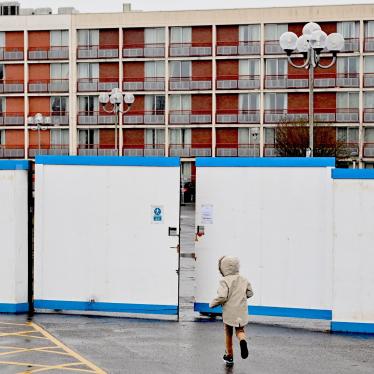Increased heat, more frequent forest fires, and other extreme weather events fueled by climate change are already harming children in Europe. Unless governments take urgent action, the situation will only get worse.
This is the message from four Portuguese children and two young adults in a case before the European Court of Human Rights against 33 governments – all EU states as well as Norway, Russia, Switzerland, Turkey, Ukraine, and the United Kingdom.
On Earth Day, the case is an important reminder of governments’ obligations to act on climate change. The Portuguese applicants, ages eight to 21, argue that heat waves and forest fires interfere with their right to life and harm their physical and mental wellbeing. They contend that these governments bear responsibility for this harm because of their failure to significantly reduce greenhouse gas emissions.
The applicants join a broader movement of youth activists around the world using street protests, online activism, and lawsuits to call out government inaction on climate change. They also make a novel legal argument that they are victims of discrimination as they have more years to live than older generations and will therefore experience the worst effects of climate change.
Cláudia Duarte Agostinho, 21, one of the plaintiffs, told Human Rights Watch: “Seeing these changes always made me feel very anxious and worried about my future and the future of my siblings. It was in 2017, when the deadliest forest fires in Portugal’s history broke out, many in the region where I live, that we became aware that something had to be done.”
The lawsuit is in its early stages, and no decision on its admissibility or substance has been made yet. But the court has decided to fast-track the case, recognizing the “importance and urgency of the issues raised.” When the 33 accused governments protested and asked the court to reconsider that assessment, it rejected their request. The court has also decided that governments should respond to both the admissibility and the substance of the case by May 27.
Human Rights Watch has documented how insufficient government action on deforestation and climate change has already harmed children’s rights. In Brazil, forest fires linked to illegal deforestation contribute to climate change and have poisoned the air. As a result, hundreds of infants have been hospitalized with respiratory illness. In Canada, the government has done little to address food poverty and health issues among Indigenous children as traditional food sources dry up, in part due to climate change. And in the United States, increasing heat has been linked to increases in premature births.
Heatwaves, droughts, and wildfires have increased in Europe in recent years and will get far worse if we do not urgently and significantly reduce greenhouse gas emissions, the European Commission found in a recent study. The impacts of climate change such as extreme heat, water scarcity, drought, forest fires, and agriculture losses are projected to particularly affect the Southern parts of Europe, including Portugal.
The Portuguese applicants are also asking the European Court to apply the burden of proof in favour of the applicants when it comes to assessing whether individual governments have done enough to limit global average temperature rise to 1.5°C, in line with their commitment in the Paris Agreement.
They suggest using the approach developed by the Climate Action Tracker, an independent scientific analysis that tracks assessments of a country’s emissions reduction target. The system ascribes “fair share” ranges corresponding to the temperature outcomes that would result if all other governments were to put forward targets with the same relative ambition level.
Under the Climate Action Tracker assessment, climate action of all respondent governments is currently either “insufficient” or “critically insufficient.” The young plaintiffs say that a government should have to prove that its efforts are sufficient to prevent the worst climate change outcomes. Otherwise the government should be presumed not to have met its obligations to protect the rights to life and bodily integrity, among other rights, under the European Convention of Human Rights.
The respondent governments now need to submit their replies both on process and substance. The case promises to put government commitments to rapidly reduce emissions under intense scrutiny and challenge the governments to demonstrate that they are protecting children’s rights from the worst climate impacts.
One of the plaintiffs is 18-year-old Martim Agostinho, Claudia’s brother. He says the decision of the court to fast-track the case brings him hope, because “the fight against climate change is a fight against time.”


